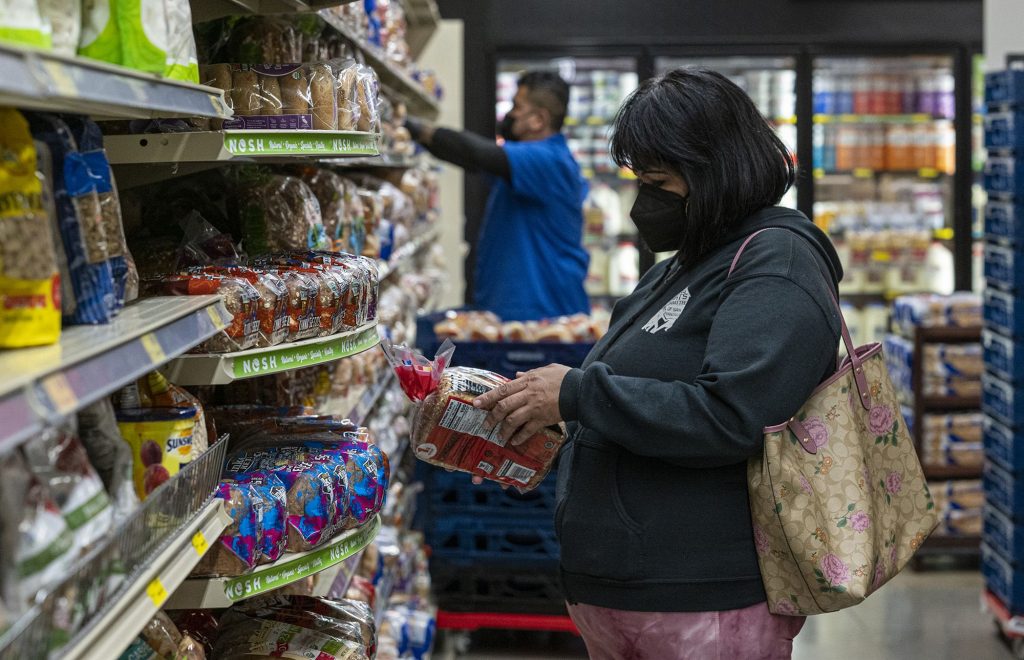The price of bread, which has seen significant price increases in the last year, is expected to ease in the coming months as global wheat prices flatten, reducing the pressure on the consumer basket.
RCL Foods, the producer of Sunbake bread, told investors on Monday following the release of the company’s interim results that it saw a marked change in consumer buying behaviour for bread in the six-month period ending December 2022.
Read: RCL withholds interim dividend, AVI ups payout
According to the food manufacturer, pricing pressures in the global wheat and maize market pushed price increases in its baking business, driving some cash-strapped consumers to trade down and seek alternatives from “lower-tier bread producers” entering the market.
Statistics SA’s most recent data on food prices showed that in the food category, the cost of bread saw the highest increase in January 2023, coming in 21.8% higher than in January 2022.
This is also higher than price increases seen for oils and fats food items and vegetable items, which also had significant price changes of 18.5% and 14.3% respectively for the period.
RCL Foods CEO Paul Cruickshank told Moneyweb that although the increases in the essential food group have been substantial in the past year, consumers can expect some relief as global market trends signal that wheat price hikes may have reached their peak.
“The bread price increases have been quite extreme and it’s obviously put pressure on the consumer who does trade off between bread, rice and maize and we’ve seen that kind of trade-off happen as well. But what we’ve seen is no price increases recently, and we’ve seen a flattening of the wheat price.
“So we don’t foresee any further price increases in bread in the near future, unless something changes from a cost perspective.”
Read:
Soaring cost of chips drives up Shisa Nyama Index
Food prices hit 14-year high as load shedding escalates
Eskom tariff hike will cut national minimum wage offer by 47%
Headline inflation according to national statistics collector Stats SA came in at 6.9% in January 2023 compared to the year before, while food inflation came way above CPI at 13.8% during the same period.
According to Wayne McCurrie of FNB Wealth and Investments, the expected slowdown in bread prices could be regarded as an indicator that food price hikes – which have pained many consumers in the last year – may also be on their way down.
“We are going through a very normal cycle. The price that we pay in the shops always lags by six months, but global food prices are actually negative in dollar terms, year on year.”
“They are actually falling and they are falling quite quickly and eventually that will work its way to the supermarket prices and the input cost prices,” says McCurrie.
“So the price of bread will actually come down. The prices of all food might not all come down, but they will certainly moderate, and basic foods like bread, chicken and beef will actually fall.”
Sugar industry in limbo
The producer of Selati sugar saw good performance in its sugar business this period, with this segment – which is driven by sugar and molasses-based animal feed products – posting a 21.1% growth in revenue for the period to R5.36 billion.
According to the group the growth was supported by higher local sales volumes “aided by strong growth in the industrial channel” as well as more favourable local and export pricing.
However, skyrocketing energy and fertiliser costs are chipping away at some of the category’s gains, while ongoing load shedding and its impact on irrigation efficiency add another threat layer for the business.
Another key concern for RCL according to Cruickshank, is the uncertainty around sugar-processing giant Tongaat Hulett’s future as a key player in the local sugar industry. With Tongaat undergoing business rescue processes, RCL warns that although in the immediate term, the producer has benefitted from Tongaat’s absence in the market, in the long term this absence may be detrimental to the competitiveness of the local sugar industry.
“The biggest challenge that we see in sugar going forward is around unknowns in the industry and we must particularly call out Tongaat Hulett’s business rescue processes as a risk to the masterplan, so that remains a concern to us,” Cruickshank said.
“Our internal operations, what we see operationally and from the side of the market, all looks intact and good, but the industry dynamics and Tongaat in particular and how that might play out is the risk to the sugar business.”
McCurrie agrees, adding that Tongaat’s exit could leave the local sugar industry vulnerable to global sugar giants, potentially subjecting the industry to dumping battles, similar to those troubling the local chicken-producing industry.
“Sugar is once again a global commodity and the local sugar industry is no longer protected,” he says, adding that 20 years ago it was protected from imports.
“So even if Tongaat’s out, you still have to compete with the global price of sugar because you can just import it.”
He explains that because actual sugar consumption in SA is relatively small volume-wise, if the global sugar price halves, producers have to cut their prices otherwise retailers “are going to import”.
Read:
Auditing giant Deloitte’s R260m Tongaat Hulett settlement ‘pathetic’ – Logan
Tongaat Hulett appoints Dan Marokane as acting CEO

